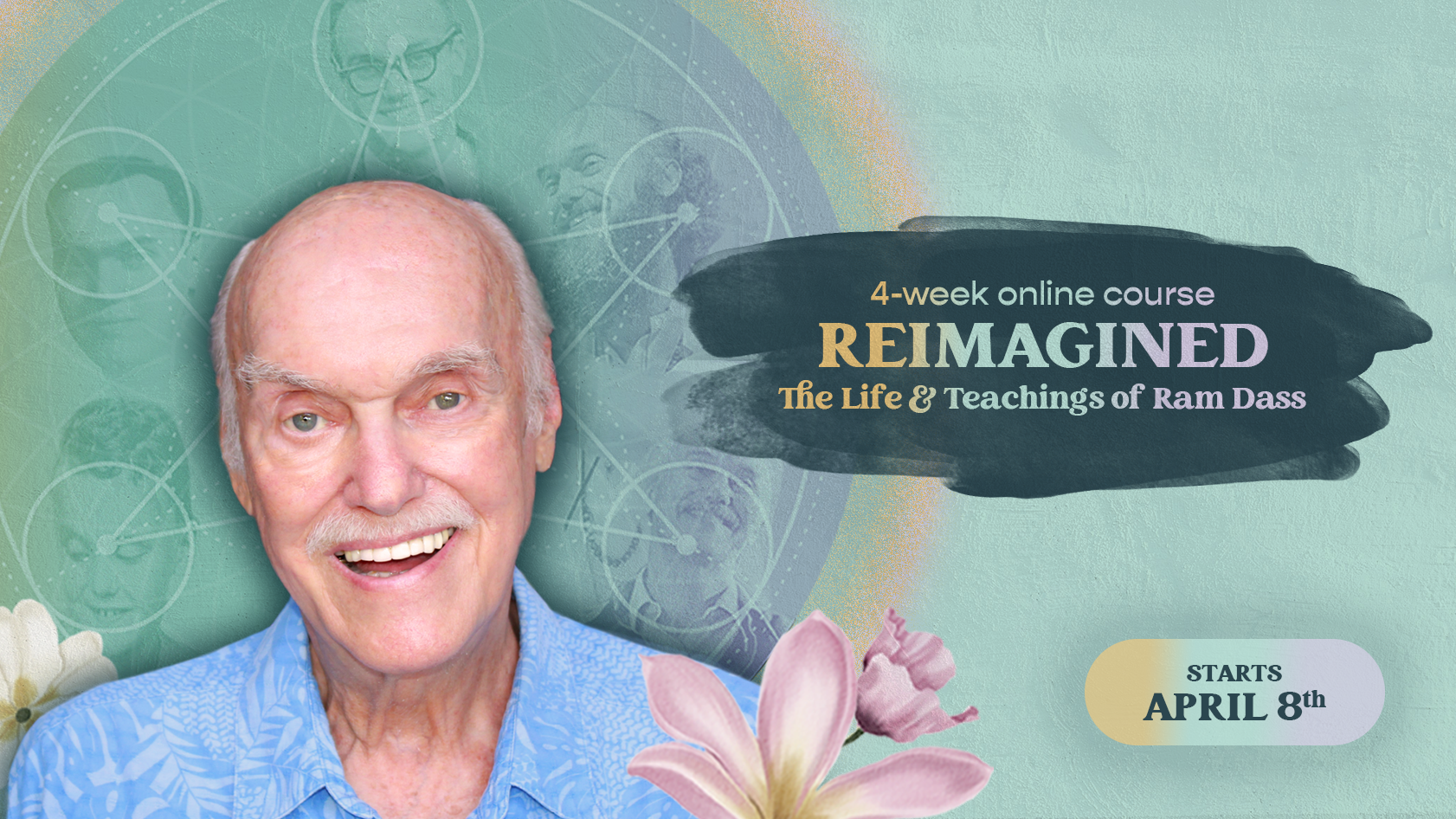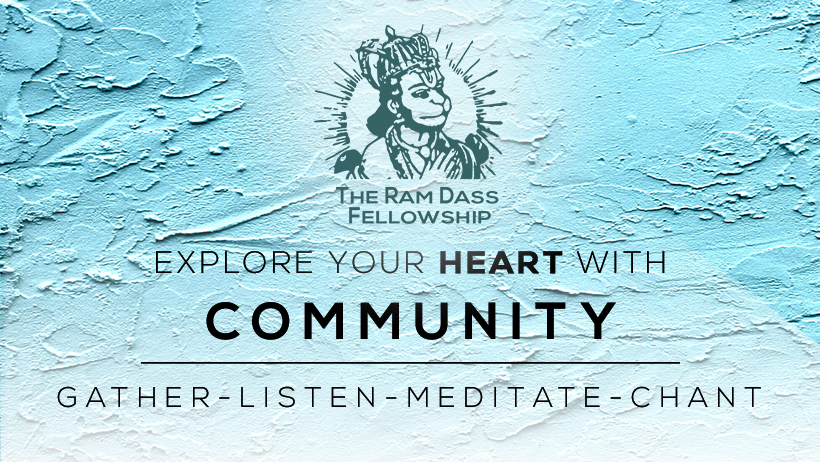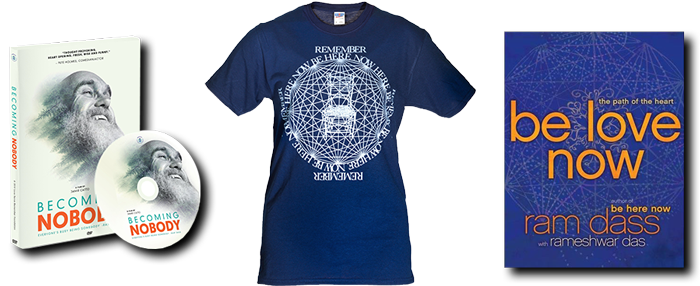Audience Question: I’ve had a lot of loss in my life. My husband has lung cancer, and I’m facing more loss in my future. I would like to know, “How can I use the grief that I feel to come to a deeper place of truth?”
Ram Dass: I know from our conversations, you have really indeed had loss after loss after loss. I mean you’re just faced with such a continuing barrage of suffering. And each time we form an attachment to another human being it is, of course, inevitable that sooner or later, that one of you is going to die. So that, in a way, the nature of attachment to human beings has loss built-in.
That’s part of what makes life precious and frightening at the same moment. The prospect of loss is what actually intensifies the attachment. The attachment contains the recognition at some level of the changing nature of phenomena – that everything is changing all the time. And it’s uncertain.
Many of us have felt the fear of loving too much. The fear and the pain of loving when you know there will be a loss. And when there is a loss, there is of course deep grief. And the way we deal with grief has a lot to do with whether or not the grief heals and strengthens us or ends up depriving and starving us.
We have learned a lot of things about grief over the years. We have learned that the strong ‘grin and bear it’ ‘stiff upper lip’ response to grief, which involves denial, is not an optimum strategy for dealing with the mourning period. In fact, my own reaction to people who are grieving is to give them a lot of support in grieving and let the process run its course. And that means not only the grief of the loss of a person, but the grief of the loss of any dream in life; of anything that you have invested in where it is lost.
There is a reaction to a loss that is a grieving process, and you must try to deal with the grieving in a way that is true to yourself.
You can’t really demand that any person is on schedule. You have to ask them to be true to their own heart. To say to somebody, “You haven’t grieved enough,” because they said they weren’t feeling anything isn’t tuning appropriately to another person. Because when they don’t grieve in harmony with their deepest truth, they end up veiled from their hearts and they end up with increasing cynicism about life and increasing fear. Fear of future involvement; fear of risk.
So how you go through these processes is really very critical to your own evolution. And again from a spiritual perspective all of these things, including your husband’s lung cancer, from your soul’s point of view – are offerings being made to you to give you the stuff through which you can grow clearer and stronger and emptier and more available; with your heart more open if you approach it with a certain strategy.
And part of that is the way in which you deal with suffering in general, the way in which you develop the ability to live in two levels simultaneously. In one of them, you see the universe as suffering. You recall the story of the Buddha where a woman came to the Buddha with her dead baby and asked the Buddha to bring the baby back to life. And the Buddha said, “Well, in order for me to do that, go to a nearby home and find a mustard seed that comes from a house where death has not visited, and I will help you.” And she went and she couldn’t find a house, because they would say, “My father died,” “my mother,” “my child died”… And finally returned recognizing the reality of the nature of death. And she was released from that kind of predicament that ‘only my child has died.’ She became aware of the context in which life and death exist.
It’s so important to develop a contextual appreciation of suffering – that suffering is part of the fabric of a human incarnation, as is death, accepting that death is part of a process. Just like Autumn and Winter aren’t enemies of Spring and Summer, they are just continuing parts of the process.
Part of that appreciation is aided a lot by understanding and deepening faith in the fact that there is a soul, or there is spiritual contact in which physical existence dwells. As you develop a spiritual context and appreciate the suffering from that place, you are much more capable of handling the physical conditions even though your heart is breaking.
Your heart is breaking, and you will feel depressed, and you will feel like crying and you have to honor that psychological process. And at the same moment, you keep cultivating the other part of you that is beyond this physical incarnation.
And instead of judging God by asking, “Why have you done this?” you say, “Let me understand. Give me the wisdom to understand and to grow strong through this. To appreciate the way in which all things are changing constantly and all of life is an interconnected circle from birth to death.”











Whenever I am struggling to find answers ram dass has article ready. Thanks rd again.
On death and dying check out Graceful Endings by Linda Kavelin Popov, an amazing support for this part of life’s journey. http://www.gracefulendings.net.